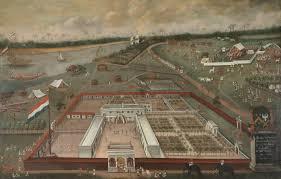Title: How British Colonialism Shaped and Distorted World History
Abstract:
British colonialism left an indelible mark on global history, not only through political and economic domination but also through the deliberate reshaping and distortion of historical narratives. This paper examines the multifaceted impact of British colonialism on world history, exploring how Eurocentric biases influenced academic disciplines, archaeological practices, cultural heritage preservation, education systems, and historical narratives across regions such as India, Africa, and Southeast Asia. By analyzing case studies and scholarly perspectives, the paper highlights the methods through which colonial powers selectively documented, interpreted, and suppressed indigenous histories to justify imperial rule and perpetuate notions of cultural superiority. Furthermore, it discusses contemporary efforts to decolonize historical narratives and promote a more inclusive understanding of global history.
1. Introduction
The introduction provides an overview of the topic, defining the scope of the paper and its significance for understanding contemporary historical scholarship. It introduces the thesis that British colonialism not only influenced political and economic structures but also deeply shaped how history itself is understood and taught globally.
2. Eurocentrism in Historical Scholarship
This section explores the development of Eurocentric historical perspectives during the colonial era and their enduring influence on academic disciplines such as history, anthropology, and archaeology. It discusses how European achievements were often elevated while non-Western contributions were marginalized or distorted, perpetuating biases that continue to influence historical narratives today.
3. Methods of Historical Distortion
Here, the paper examines specific methods through which British colonialism distorted historical narratives. It analyzes cases from India, Africa, and Southeast Asia to illustrate how colonial powers selectively documented and interpreted history to serve imperial agendas. The section discusses the suppression of indigenous histories, the rewriting of cultural narratives, and the impact of these distortions on contemporary understandings of the past.
4. Impact on Archaeology and Cultural Heritage
This section investigates the impact of British colonialism on archaeology and cultural heritage preservation. It examines how archaeological expeditions were conducted to reinforce colonial narratives and justify imperial control. The discussion includes examples of cultural erasure and the neglect of indigenous cultural sites, highlighting the long-term consequences for cultural heritage preservation efforts.

5. Education and Ideological Propagation
The paper explores the role of colonial education systems in propagating imperial ideologies and values. It analyzes how textbooks and curriculum were used to indoctrinate colonial perspectives, shaping global perceptions of history and reinforcing notions of cultural superiority. The section also discusses the enduring legacy of colonial education structures in post-colonial societies.
6. Case Studies and Regional Impacts
This section presents case studies from India, Africa, and Southeast Asia to illustrate the regional impacts of British colonialism on historical narratives. It examines how colonial interpretations influenced understandings of ancient civilizations, resistance movements, and cultural identities in each region, providing specific examples of colonial constructs of civilization and their implications.
7. Contemporary Reevaluations and Challenges
Here, the paper discusses contemporary efforts to decolonize historical narratives and promote a more inclusive understanding of global history. It examines challenges and successes in reclaiming indigenous perspectives, integrating diverse voices into historical scholarship, and addressing the legacies of colonial distortions in contemporary historiography.
8. Conclusion
The conclusion summarizes the findings of the paper, emphasizing the enduring legacies of British colonialism on world history. It reflects on the implications for historical scholarship and proposes recommendations for fostering a more inclusive and accurate portrayal of global history, acknowledging the diversity of human experiences and contributions.
References
The references section includes a comprehensive list of scholarly sources, books, articles, and primary documents cited throughout the paper, providing a foundation for further research and exploration of the topic.
This research paper aims to provide a thorough examination of how British colonialism shaped and distorted world history, offering a critical analysis of its impacts across various dimensions of historical scholarship and contemporary discourse.









